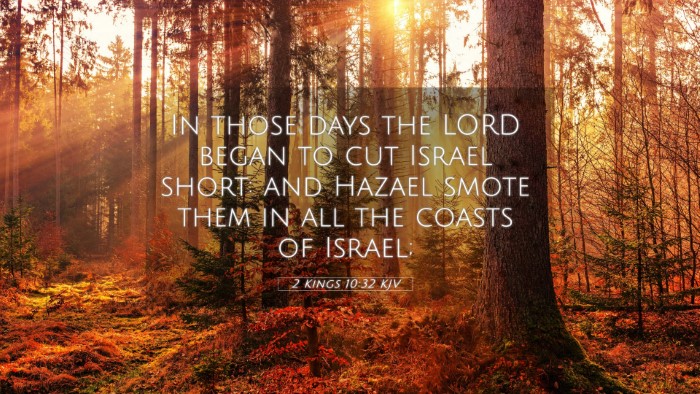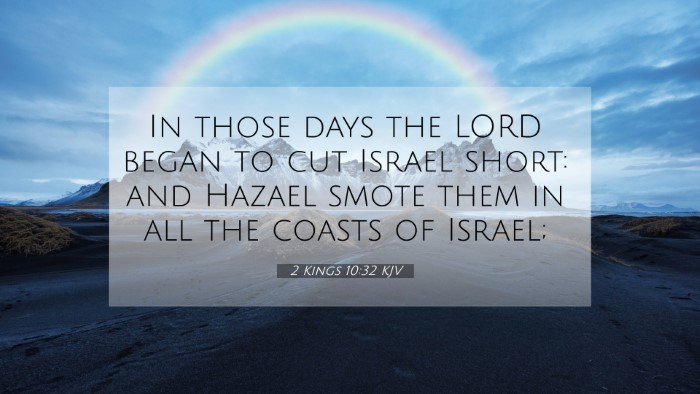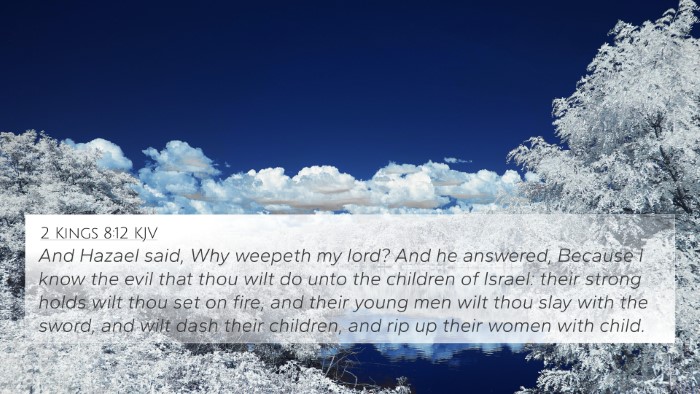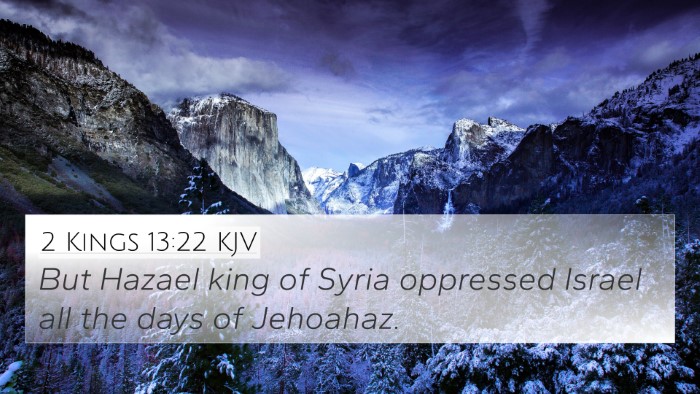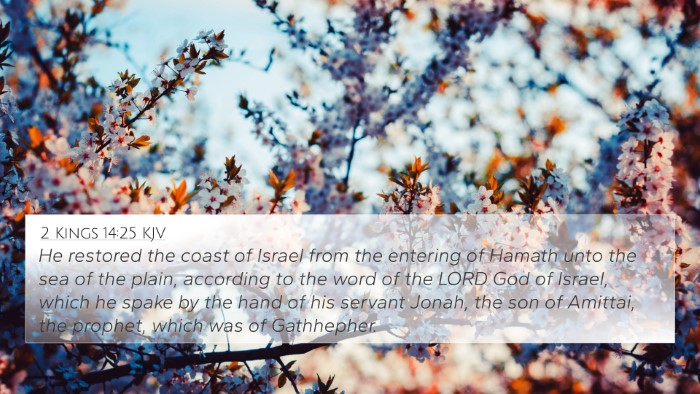Understanding 2 Kings 10:32
2 Kings 10:32 reads: "In those days the LORD began to cut off parts of Israel; and Hazael smote them in all the coasts of Israel." This verse indicates a significant event in the history of Israel, where divine judgment is executed through the actions of Hazael, the king of Syria. The historical context provides deep insights into the spiritual state of Israel and its relationship with God.
Contextual Analysis
Matthew Henry notes that this verse emphasizes God's sovereignty in the affairs of nations and His ability to raise up leaders like Hazael to fulfill His purposes. Hazael's victories are not merely military successes but are steeped in the judgment that God is exacting against Israel for their unfaithfulness.
Albert Barnes also points out that the "cutting off" of parts of Israel shows the partial fulfillment of God's promises, highlighting a theme of divine justice. As God begins to remove His protection from Israel, it reveals the consequences of turning away from Him.
Adam Clarke emphasizes the role of Hazael as an instrument of divine retribution, reflecting on how God can use even foreign nations to execute His will. This raises important questions about God's method of guiding history and the implications for Israel's future.
Key Themes and Connections
- Divine Judgment: The verse highlights how unfaithfulness leads to God's judgment, a recurring theme throughout the Old Testament.
- Sovereignty of God: It shows that God is in control of the rise and fall of nations, often using sinful leaders to carry out his designs.
- Historical Context: Understand the significance of Hazael's campaigns against Israel as part of God’s plan for His people.
Bible Verse Cross-References
This verse has several critical cross-references that help in understanding its implications:
- Amos 1:4 - "But I will send a fire upon the house of Hazael, which shall devour the palaces of Benhadad." This verse links to the fate of Hazael and the prophetic judgments against him.
- 2 Kings 19:25 - “Hast thou not heard long ago how I have done it, and of ancient times that I have formed it?” This speaks to God's longstanding interaction and control over nations.
- Hosea 1:4 - "And the LORD said unto him, Call his name Jezreel; for yet a little while, and I will avenge the blood of Jezreel upon the house of Jehu..." This references God’s judgment upon the house of Israel.
- Jeremiah 49:27 - "And I will set fire in the wall of Damascus, and it shall consume the palaces of Benhadad." Another affirmation of God's judgment on Damascus, indicating interwoven fates.
- Isaiah 7:1 - This verse discusses the context of Israel's political struggles, providing background that pertains to Hazael’s actions.
- Ezekiel 39:5 - "Thou shalt fall upon the open field: for I have spoken it, saith the Lord GOD." This reinforces themes of divine assurance regarding judgment and victory.
- Matthew 23:37 - “O Jerusalem, Jerusalem, thou that killest the prophets, and stonest them which are sent unto thee...” This passage connects back to God's consistent call for repentance and the resulting judgment.
- Luke 19:41-44 - This instance where Jesus weeps over Jerusalem parallels the theme of divine judgment being enacted due to rejection of God.
Thematic Connections
Thematically, 2 Kings 10:32 relates to broader narratives within Scripture about:
- The prophetic warnings against Israel's unfaithfulness.
- The rise of nations and their eventual fall as ordained by God.
- God's interactions with His people and the expectations placed upon them.
Tools for Bible Cross-Referencing
Studying 2 Kings 10:32 effectively involves employing various tools for Bible cross-referencing, including:
- Bible Concordance: A comprehensive listing of terms and references to locate related verses easily.
- Bible Cross-Reference Guide: A manual or digital tool to help identify similar themes among verses.
- Cross-Reference Bible Study: Methods that involve mapping connections between scriptures for deeper understanding.
- Bible Reference Resources: Materials that provide insights into links across different Bible books.
Conclusion
In summary, 2 Kings 10:32 encapsulates profound theological concepts regarding the consequences of sin, the sovereignty of God, and the overarching narrative of judgment and redemption throughout Scripture. By exploring this verse through the lenses provided by various commentaries and connecting it to other key scriptures, one can gain a richer understanding of God's work in history and the spiritual lessons for today.

